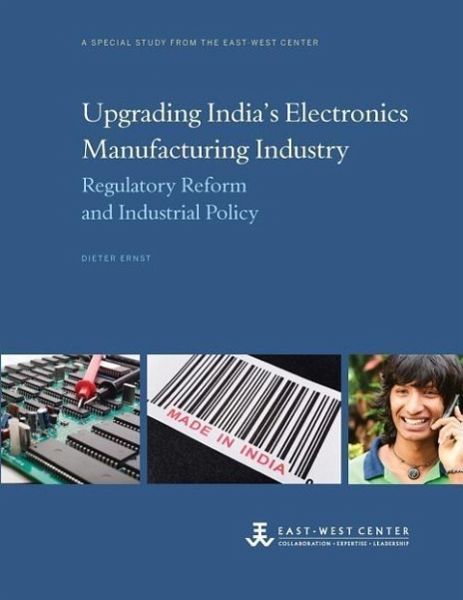
Upgrading India's Electronics Manufacturing Industry: Regulatory Reform and Industrial Policy
Versandkostenfrei!
Nicht lieferbar
India, a leading exporter of information-technology services, faces a fundamental puzzle. Its electronics industry is struggling despite a huge and growing domestic market and pockets of world-class capabilities. Drawing on survey questionnaires and interviews with key private and public industry players and multinationals, this study examines how restrictive regulations and a largely dysfunctional implementation of past support policies have constrained investment in plants and equipment and technology absorption and innovation. Electronics manufacturing remains disconnected from India's chip...
India, a leading exporter of information-technology services, faces a fundamental puzzle. Its electronics industry is struggling despite a huge and growing domestic market and pockets of world-class capabilities. Drawing on survey questionnaires and interviews with key private and public industry players and multinationals, this study examines how restrictive regulations and a largely dysfunctional implementation of past support policies have constrained investment in plants and equipment and technology absorption and innovation. Electronics manufacturing remains disconnected from India's chip-design capabilities which are integrated, instead, into global networks of innovation and production. India's growing domestic demand for electronic products results in rising imports of final products and high import-dependence for key components. Bold action is required to change the anemic growth of electronics manufacturing just when the global electronics industry is rapidly ending historical strategies for growth. To achieve its potential, electronics manufacturing in India must move beyond "high-volume, low-cost" activities, towards a greater focus on "low-volume, high-value" production and on frugal innovation for the domestic market. The government's National Policy on Electronics is a first step on this path, but it needs to be complemented by reforms relating to taxation, customs, compliance, and inspections. Equally important are efforts to enhance the strategic use of technical standards and smart approaches to international trade diplomacy.











